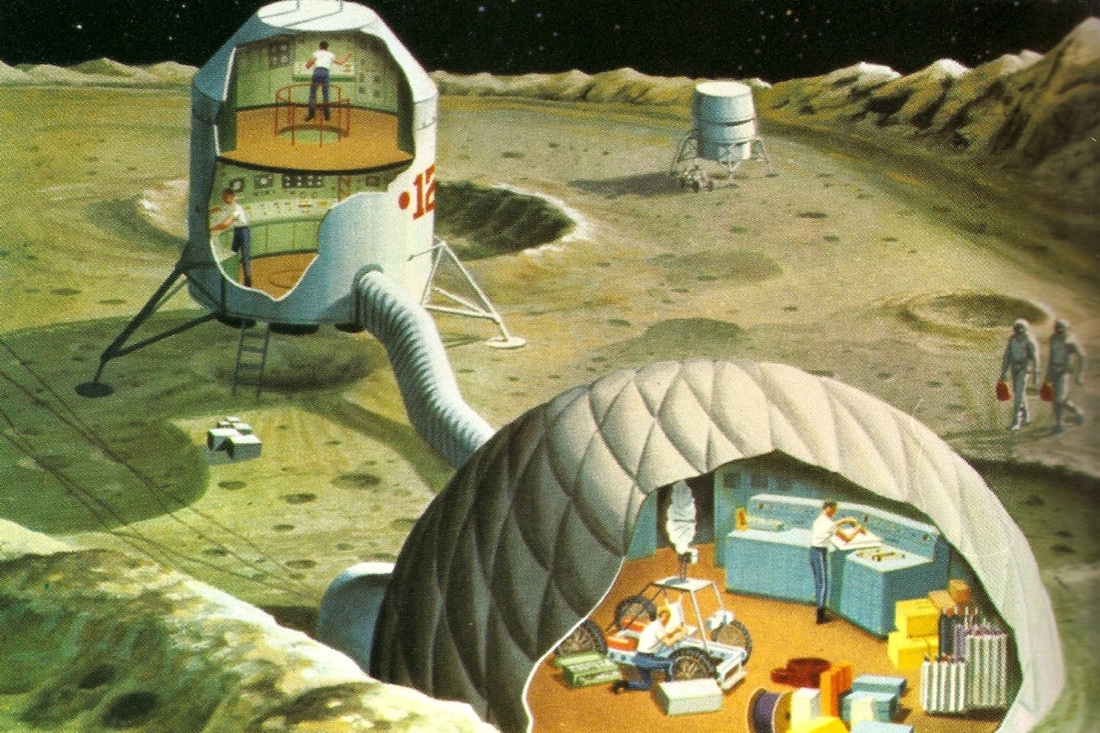Brian Clegg doesn’t believe a moon colony could be profitable, but what if new technologies and better financial planning rendered the project relatively inexpensive? And what if the non-economic gains, at least the immediate ones, could benefit us in numerous other ways?
Jurica Dujmovic of Marketwatch pointed me toward a New Space article by Alexandra Hall, Chris McKay and John Cumbers, which proposes just such a low-cost lunar settlement be established. They believe recent advances in launch capacity and lessons learned from the International Space Station could seriously shave costs.
An excerpt:
Just imagine a small lunar base at one of the lunar poles operated by NASA or an International Consortium and modeled according to the U.S. Antarctic Station at South Pole. The crew of about 10 people would consist of a mixture of staff and field scientists. Personnel rotations might be three times a year. The main activity would be supporting field research selected by peer-reviewed proposals. Graduate students doing fieldwork for their thesis research would dominate the activity. No one lives at the base permanently but there is always a crew present. The base is heavily supported by autonomous and remotely operated robotic devices.
The activities at this Moon base would be focusing on science, as is the case in the Antarctic. It could provide an official U.S. Government presence on the Moon and its motivation would be rooted in U.S. national policy—again as are the U.S. Antarctic bases. A lunar base would provide a range of technologies and programmatic precedents supporting a long-term NASA research base on Mars.
None of these ideas is new, but given that all prior assumptions for execution revolved around such an activity consuming all or most of the NASA budget for decades, then progress has been extremely limited.
Now imagine that the cost of such a lunar base was within NASA’s existing deep space human spaceflight budget of $3–4 billion per year. Suddenly it would be an easy sell and would receive no opposition from the sections of the space community that are focused on other destinations.
The logic that low cost changes the terms of the debate about a NASA Moon base and enables a consensus path forward to establishing a base also applies to private/commercial endeavors. When the cost of a short stay on the Moon drops into the tens of millions of dollars per person, it starts to tap into the same market that has given us private spaceflight participants to the International Space Station (ISS). Furthermore, the presence of a government base is also the presence of a customer on the Moon—a factor that can stimulate the development of services, supplies, and technology to the benefit of all.•

